HEXAPOD
Updated: 03/04/2008 by TG
Updated: 08/17/2018 by EF
The hexapod model we have is a Physik Instrumente (PI) M-850.11.
There is no longer documentation for our model on the PI website,
but this is a good approximation:
PI 850
We (WP, TG, RH and EF)
replaced the secondary support system (the "pod") with a
new hexapod at the end of the August 2001 shutdown. The hexapod and
our home-brewed control software (theory by EF, implementation by TG)
started performing well right at
first light, on 07-SEP-01. We were first able to collimate the
telescope (much more readily than before) on 08-SEP-01.
Installation images:
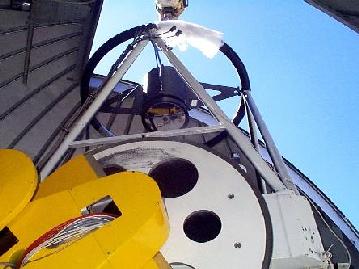 |
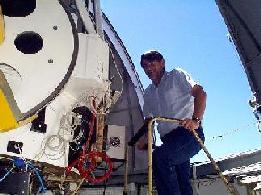 |
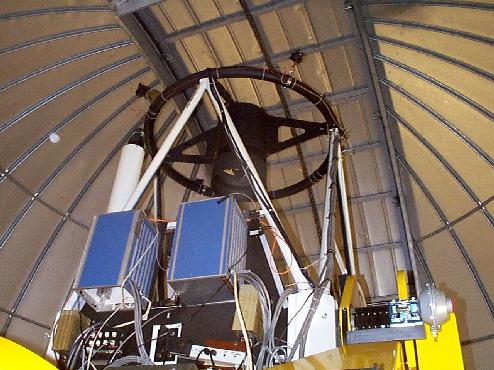
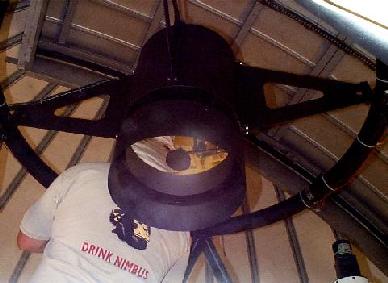
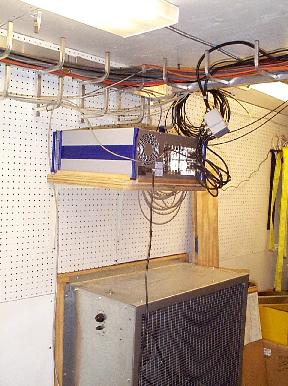 Hexapod control PC (now in the dog house)
Hexapod control PC (now in the dog house)
Hexapod focus values are in mm, rather than some obscure
unit. Typical values are around 13.6 mm for 4shooter, and 15.4 for
IRcam, optimized on the red channel. The hexapod needs to be
re-initialized every time tcs is restarted. Both tcs programs restart
focus at approximately correct values. Also, the *SIGN* of focus
change is the opposite of what it was with the old pod. The old
scripts for focusing the telescope will still work because we have
included the conversion to the new units, including their sign. For
your own scripts, tele focus still works with the old units. The
exception is that you will have to invert the *SIGN* of focus changes,
such as when you change focus for the U filter.
If you use the "Focus" menu item in the ntcs window, as an
example, to change the focus for the U filter from the focus
appropriate for all the other filters, you would use "Focus Set" to
change the "Focus Move Size" to 0.1143 (in mm). Then, to
obtain the old focus change U=B+90, you would click on "Go -0.114"
(only 3 significant digits are shown) to achieve U=B-0.114.
The hexapod has no backlash problem, so all commands in your
scripts that corrected for it should be eliminated.
The pointing was off initially because of the difference in
weights between the pod and hexapod. EF obtained a new pointing grid
on in Dec. 01, and installed a new pointing model. The
pointing improved significantly, including at DEC > 75 deg, after
D. Harvey found an error in the version of TCS that we use.
We continually monitor the quality of the collimation with the
hexapod. The collimation has remained stable
and has needed only minor tweaks.




 Hexapod control PC (now in the dog house)
Hexapod control PC (now in the dog house)




 Hexapod control PC (now in the dog house)
Hexapod control PC (now in the dog house)